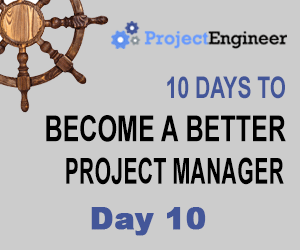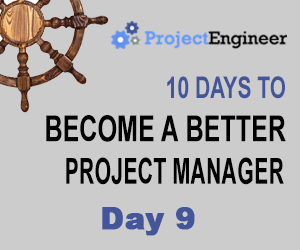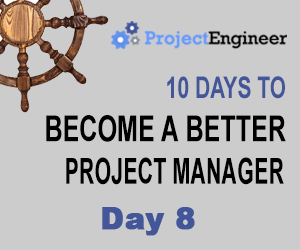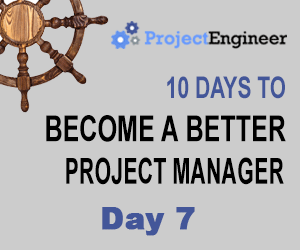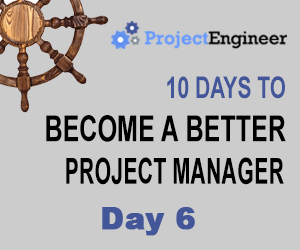Project Management, PMBOK style
Many people become project managers simply by receiving additional responsibility or via promotion into the role. As such, project management fundamentals are often unknown to the very people who manage projects. The Project Management Institute's Project Management Body of Knowledge (PMBOK) is a very structured, analytical outline of a somewhat....
Parts of a Project Management Plan
The difference between a successful project and an unsuccessful one can usually be narrowed down to one word: Planning. The Project Management Institute (PMI) reports that only 64% of projects meet their intended goals, and from my experience working for a large engineering company, this is probably not too far....
Denial-of-Service Attack
As you may be aware, this site has been down for the last few days. On the evening of Tuesday July 28, we were the target of a denial of service attack. This means that a malicious party (hacker) bombards a website with so much traffic that the server fails. ....
How to Manage Projects using the PMBOK
Many people become project managers simply by receiving additional responsibility or via promotion into the role. As such, project management fundamentals are often unknown to the very people who manage projects. To make matters worse, the Project Management Institute's Project Management Body of Knowledge (PMBOK) is a very structured, analytical....
Risk Management Plan Components
Few projects go off without a hitch, especially when client/sponsor relationships are not strong. That's why I would argue that risk management is one of the most important components of project management. When unexpected events occur, it is clear that the identification and analysis of risks is a central cog....
Day 10: Motivate the Project Team
Your project team is the single biggest factor in the successful completion of your project. When everything is stripped away, a project is nothing more than teams of people doing some work, and the quality of the final products will only be as good as the people producing them. So....
Day 9: Create a Project Management Plan
A project manager's roadmap and guiding document is called a project management plan. It puts all the pieces of project management together into one coherent place. Rather than holding all the pieces of the project in your head (like alot of project managers I know) it's incredibly helpful to organize....
Day 8: Mitigate Project Risks
Risk management,as a subset of project management, is not a new concept but has been growing momentum as of late. Project managers are expected to know the risks inherent in their projects, and give them the appropriate level of scrutiny. Definition Project risk is defined by the Project Management Institute....
Day 7: Identify your Project Stakeholders
A common problem we used to have on many of our projects was with a certain regulatory body. They were very slow, and you never knew how long the project would be delayed before they even began their review. The frustrating thing wasn't even so much when they came back....
Day 6: Determine Project Status using Earned Value Analysis
Since many people become project managers via promotion from a technical role, "flying by the seat of your pants" is often the norm. You might know the progress and delivery date of various tasks, the deadline date for the overall project, and you might be on top of the overall....




